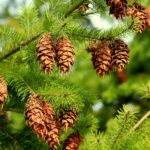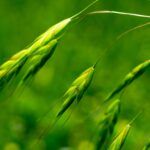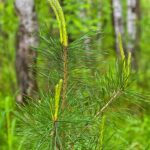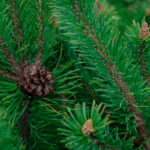Koira-words in the plural partitive
This article combines two important bits of information related to the plural partitive case. Firstly, it lists words that inflect the same way as the word koira, ie. words of two syllables where the final -a gets replaced with -ia. These are often called koira-words in language courses. Secondly, these words have been listed in example sentences that showcase the situations in which you normally use the partitive plural.
1. What are koira-words?
I call these words koira-words because it helps learners remember the type. In addition to koira-words there are also kissa-words, which inflect differently. Using the easy to remember contrast between cats and dogs has helped many students. If you take a look at the word types on KOTUS, this is type number 10-.
Koira-words consist of two syllables, which contain o or u in the first syllable, and have an -a at the end of the word. In other words, you could see them as o…a (koira, sota, homma) or u…a (lupa, summa, hurja).
2. The partitive plural in negative sentences
Object sentences usually have the object inflected in the plural partitive when the sentence is made negative. This is true for both singular and plural objects: the positive sentence “Ostan poran” becomes “En osta poraa” (using the singular partitive case) and the positive sentence “Ostan porat” becomes “En osta poria” (using the plural partitive case).
| Finnish | English | Example | English |
|---|---|---|---|
| homma | job | En ole ennen tehnyt näitä hommia. | I haven’t done these jobs before. |
| kuva | picture | Ari ei ottanut näitä kuvia. | Ari didn’t take these pictures. |
| musta | black | Minulla ei ole mustia T-paitoja. | I don’t have black T-shirts. |
| oma | own | En halua vielä omia lapsia. | I don’t want children of my own yet. |
| osa | part | En osaa yhdistellä näitä osia toisiinsa. | I don’t know how to combine these parts. |
| pula | shortage | En jaksa näitä rahapulia. | I can’t stand these money shortages. |
| puuha | activity | En ymmärrä Arin puuhia. | I don’t understand Ari’s undertakings. |
| puuska | gust | Puut eivät kestä näin kovia puuskia. | Trees cannot withstand such severe gusts. |
| rupla | ruble | Forex ei enää osta Venäjän ruplia. | Forex no longer buys Russian rubles. |
| surma | killing | Surmia ei voitu ennakoida. | The killings could not have been foreseen. |
| tuhma | naughty | Kukaan ei rakasta tuhmia lapsia. | Nobody loves naughty children. |
| tuima | stern, grim | En kestä äitini tuimia katseita. | I can’t stand my mother’s stern gazes. |
| tuuba | tuba | Nämä valmistajat eivät tee tuubia. | These manufacturers don’t produce tubas. |
| ultra | ultrasound | Tässä neuvolassa ei tehdä ultria. | This clinic doesn’t do ultrasounds. |
| vuokra | rent | He eivät koskaan maksa vuokriaan. | They never pay their rents. |
3. The partitive plural with partitive verbs
Partitive verbs contain an object which always (or often) appears in the partitive case. When the object is plural, you will use the plural partitive.
| Finnish | English | Example | English |
|---|---|---|---|
| burka | burqa | Naiset käyttävät burkia tai niqabeja. | The women use burqas or niqabs. |
| doula | doula | Synnytyslääkäri kouluttaa doulia. | The obstetrician trains doulas. |
| flunssa | flu | C-vitamiini estää flunssia. | Vitamin C prevents common cold outbreaks. |
| fuuga | fugue | Kuuntele ihania sonaatteja ja fuugia! | Listen to wonderful sonatas and fugues! |
| huiska | pom-pom | Cheerleaderit heiluttavat huiskiaan. | The cheerleaders wave their pom-poms. |
| kobra | cobra | Ärsytitkö noita kobria? | Did you annoy those cobras? |
| kotka | eagle | Pelkään kotkia ja hanhia. | I’m afraid of eagles and geese. |
| kuuma | hot | Varo kuumia pintoja! | Beware of hot surfaces! |
| loma | vacation | Kadehdin opettajien pitkiä lomia. | I envy teachers’ long vacations. |
| luja | firm, strong | Arvostan lujia perhesiteitä. | I value strong family ties. |
| nuha | cold | Lapset sairastavat lieviä nuhia. | Children suffer from mild colds. |
| nuija | club, mallet | He käyttivät nuijia aseinaan. | They used clubs as their weapons. |
| oksa | branch | Tuuli liikuttelee oksia. | The wind moves the branches. |
| proffa | professor | Kuuntelen proffiani mielelläni. | I like to listen to my professors (colloquial). |
| pulma | puzzle | Ari rakastaa pulmia ja arvoituksia. | Ari loves puzzles and riddles. |
| rouva | lady | Pidät meitä vanhoja rouvia tyhminä. | You think us old ladies stupid. |
| ruoska | whip | Ruoskia käytettiin ohjaamaan hevosia. | Whips were used to guide horses. |
| soija | soy | Kannattaa kokeilla erilaisia soijia. | It is worth trying different soys. |
| sorja | slender | Sukkahousut verhoavat sorjia sääriä. | The tights cover slender legs. |
| struuma | goiter | Jodi auttaa ehkäisemään struumia. | Iodine helps prevent goiters. |
| summa | sum | Nyt hamstrataan isoja summia käteistä. | Large sums of cash are being hoarded now. |
| suura | surah | Uskovaiset tulivat kuuntelemaan suuria. | The believers came to listen to the surahs. |
| tooga | toga | Muinaiset roomalaiset käyttivät toogia. | The ancient Romans used togas. |
| tuuma | inch | Vertailutaulukossa käytetään tuumia. | Inches are used in the comparison table. |
| voima | strength | Toivon teille voimia. | I wish you strength. |
4. The partitive plural with prepositions
Finnish has a fairly small amount of prepositions, which require the word connected to them to appear in the partitive case. More common are postpositions, which come with the genitive case. As you can see from the examples below, this list also contains some prepositions that have the same word order as postpositions, yet still require the partitive case.
| Finnish | English | Example | English |
|---|---|---|---|
| juhla | party | Join jo ennen juhlia oluen. | I already drank a beer before the party. |
| koira | dog | Elämä ilman koiria tuntuu tyhjältä. | Life without dogs feels empty. |
| korva | ear | Ilman korvia et voi kuulla mitään. | Without ears you can’t hear anything. |
| luola | cave | Leijonat seisovat lähellä luolia. | The lions are standing close to the caves. |
| murha | murder | Ostin aseen päivää ennen murhia. | I bought a gun a day before the murders. |
| mutka | bend | Asenna poistovesiletku ilman mutkia. | Install the drain hose without bends. |
| ohja | rein | Olen tottunut ratsastamaan ilman ohjia. | I’m used to riding without reins. |
| ruuhka | traffic jam | Kävin ennen ruuhkia kaupassa. | I went to the store before the traffic jams. |
| sola | pass | He saapuivat Alppien solia pitkin. | They arrived along the Alpine passes. |
| sorsa | duck | Olin liian lähellä sorsia. | I was too close to the ducks. |
| sota | war | Kaikki oli paremmin ennen sotia. | Everything was better before the wars. |
| suora | straight | Hermostun ennen suoria lähetyksiä. | I get nervous before live broadcasts. |
| tulva | flood | Sato korjattiin ennen tulvia. | The crop was harvested before the floods. |
| tumma | dark | Ostin banaaneja ilman tummia läiskiä. | I bought bananas without dark spots. |
| turha | useless | Teemme työtä ilman turhia palavereita. | We work without unnecessary meetings. |
| ura | groove | He ajavat samoja uria pitkin. | They drive along the same tracks. |
5. The partitive plural in complement sentences
Complement sentences (the Finnish term is predikatiivilause) consist of a subject, the verb olla and a descriptive word. In this sentence type, the most common ending for plural complements is the plural partitive. When making the sentence “Nainen on orja” plural, it becomes “Naiset ovat orjia“, using the plural partitive.
| Finnish | English | Example | English |
|---|---|---|---|
| dorka | dork | Te molemmat olette dorkia. | You’re both dorks (colloquial). |
| hurja | fierce | Suomalaiset ovat hurjia. | Finns are fierce. |
| julma | cruel | He ovat julmia ja armottomia. | They are cruel and merciless. |
| konna | villain | Ovatko he konnia vai sankareita? | Are they villains or heroes? |
| kova | hard | Jotkut puulajit ovat kovia. | Some types of wood are hard. |
| kuha | zander | Nämä kalat ovat kuhia. | These fish are zanders. |
| kuiva | dry | Nämä pyyhkeet ovat kuivia. | These towels are dry. |
| luoja | creator | Ihmiset ovat taiteen luojia. | Humans are the creators of art. |
| luova | creative | Nykytaiteilijat ovat hyvin luovia. | Contemporary artists are very creative. |
| nunna | nun | Miehet eivät voineet olla nunnia. | Men couldn’t be nuns. |
| nuuka | stingy | He olivat nuukia lämmityksen kanssa. | They were skimpy with the heating. |
| oiva | splendid | Nämä ovat oivia esimerkkejä. | These are splendid examples. |
| orja | slave | Olemme sosiaalisen median orjia. | We are slaves to social media. |
| pulska | chubby | Vauvat saavat olla pulskia. | Babies are allowed to be chubby. |
| ruma | ugly | Miksi nämä lapset ovat niin rumia? | Why are these children so ugly? |
| ruuna | gelding | Molemmat hevoset olivat ruunia. | Both horses were geldings. |
| soma | cute | Tytöt ovat somia pitkissä mekoissaan. | The girls are cute in their long dresses. |
| sora | gravel | Kerrostumat ovat usein karkeita soria. | The deposits are often rough gravels. |
| sorsa | duck | Nämä linnut ovat sorsia. | These birds are ducks. |
| sula | molten | Joet ovat osin sulia. | The rivers are partially molten. |
6. The partitive plural in simple object sentences
These sentences have an object, which refers to a plural amount without specifying exactly how many (“multiple” or “several”). These verbs are not partitive verbs, ie. they don’t require the partitive in every situation. Rather, the partitive plural is used due to the unspecified plural amount of the object.
| Finnish | English | Example | English |
|---|---|---|---|
| kulma | angle, corner | Osaatko piirtää suoria kulmia? | Can you draw right angles? |
| kuorma | load | Kuljeta raskaita kuormia varovasti! | Transport heavy loads carefully! |
| kurja | wretched | Sain kurjia uutisia esihenkilöltäni. | I got bad news from my boss. |
| muna | egg | Ostaisitko Lidl:stä kananmunia? | Could you buy eggs from Lidl? |
| oja | ditch | Kaivinkone kaivaa syviä ojia. | The excavator digs deep ditches. |
| otsa | forehead | Huomasin hikisiä otsia kuntosalissa. | I noticed sweaty foreheads in the gym. |
| pohja | bottom | Maustan kakkupohjia kanelilla. | I flavor cake bases with cinnamon. |
| pulla | bun | Leivoimme lasten kanssa pullia. | We baked bread buns with the kids. |
| puska | bush | Aion istuttaa puskia tai pensaita tähän. | I will plant bushes or shrubs here. |
| roina | junk | Haluan myydä noita turhia roinia. | I want to sell some of that useless junk. |
| roska | trash | Rotat levittävät roskia ympäri pihaa. | Rats spread debris around the yard. |
| rulla | roll | Osta noita värikkäitä teippirullia! | Buy those colorful tape rolls! |
| ruuma | hold | Merimiehet täyttävät laivojen ruumia. | Sailors fill the holds of ships. |
| sohva | couch | Myydäänkö täällä valkoisia sohvia? | Do they sell white couches here? |
| stoola | stole | Nainen ompelee turkkeja ja stoolia. | The woman sews furs and stoles. |
| suoja | protection | Tarvitsemme sateensuojia veneisiin. | We need rain shelters for boats. |
| tutka | radar | Armeija ostaa tutkia ja tykkejä. | The army buys radars and cannons. |
| tuurna | mandrel | Laatikko sisältää vasaroita ja tuurnia. | The box contains hammers and mandrels. |
| uoma | channel | Vesi synnytti saveen syviä uomia. | The water created deep furrows in the clay. |
| votka | vodka | Täällä myydään erilaisia votkia. | Various vodkas are sold here. |
| vodka | vodka | Myymme viinejä, vodkia ja liköörejä. | We sell wines, vodkas and liqueurs. |
7. The partitive plural in existential sentences
Existential sentences refer to the existence of multiple things in a place (either concrete or abstract). The amount of things is not specified. These sentences start with a location case (e.g. -ssa, -lla, -lta).
| Finnish | English | Example | English |
|---|---|---|---|
| horsma | willowherb | Raunioilla kasvoi kukkivia horsmia. | In the ruins grew flowering willowherbs. |
| huima | dizzying | Hinnoissa on huimia eroja. | There are huge differences in the prices. |
| juna | train | Rautatieasemalla on junia. | There are trains at the train station. |
| juova | streak | Pinnassa ei saa olla juovia. | There must be no streaks on the surface. |
| kotka | eagle | Pöytyällä pesii kotkia. | Eagles nest in Pöytyä. |
| kuja | alley | Kaupungissa on kapeita kujia. | There are narrow alleys in the city. |
| kumma | strange | Täällä on paljon kummia tavaroita. | There are many strange objects here. |
| kupla | bubble | Uima-altaassa oli kuplia. | There were bubbles in the pool. |
| loiva | gentle | Reitillä oli pitkiä loivia alamäkiä. | The route had long gentle descents. |
| nolla | zero | Salasanassa on useita nollia. | There are several zeros in the password. |
| plussa | plus, pro | Kaikissa on plussia ja miinuksia. | There are pros and cons to everything. |
| pora | drill | Vajassa on sahoja ja poria. | There are saws and drills in the shed. |
| puuma | cougar | Onko Suomessa puumia? | Are there cougars in Finland? |
| roosa | pink, rosie | Tapetissa oli roosia raitoja. | The wallpaper had pink stripes. |
| suova | haystack | Maaseudun kylissä näkyy heinäsuovia. | Haystacks are visible in rural villages. |
| suula | gannet | Kallioilla pesii suulia. | Gannets nest on the rocks. |
| tundra | tundra | Planeetalla on aavikoita ja tundria. | The planet has deserts and tundras. |
| turma | accident | Kotona sattuu paljon tapaturmia. | A lot of accidents happen at home. |
| turska | cod | Rannalla oli turskia mätänemässä. | There were cods rotting on the beach. |
| usva | mist | Näiltä järviltä kohoaa usein usvia. | Mist often rises from these lakes. |
| uurna | urn | Esillä on uurnia ja arkkuja. | Urns and coffins are on display. |
| vuona | lamb | Tuossa on vuonia, uuhia ja oinaita. | There are lambs, ewes and rams right there. |
That’s all for koira-words in the plural partitive! This list isn’t complete and while googling for example sentences, I ran into some unexpected problems. For one, Finnish has a lot of verbs which have a basic form ending in -ia. This often resulted in wrong hits while searching because Google would give lots of examples of the verb rather than the plural partitive form. Some plural partitive forms that are also verbs include:
- Ruoskia: this can be both the plural partitive of the noun ruoska “whip” and the basic form of the verb ruoskia “to whip”
- Potkia: this can be both the plural partitive of the noun potka “shank, gaskin” and the basic form of the verb potkia “to kick”
There were also cases where two nouns would have a form in common:
- Suuria: this can be both the plural partitive of the noun suura “Sura (chapter of the Qur’an)” and the plural partitive of the noun suuri “large”
- Putkia: this can be both the plural partitive of the noun putka “jail” and the plural partitive of the noun putki “pipe”
- Puolia: this can be both the plural partitive of the noun puola “bobbin, spoke” and the plural partitive of the noun puoli “half”
- Poria: this can be both the plural partitive of the noun pora “drill” and the singular partitive of the Finnish city Pori
Hopefully this list is useful to you in some way, and you’ve enjoyed my silly example sentences! You can find a similar list of kissa-words here.





Small typo in section 3, the English translation should be flu. A flue is a synonym for a chimney / savupiippu.
Thanks! 🙂